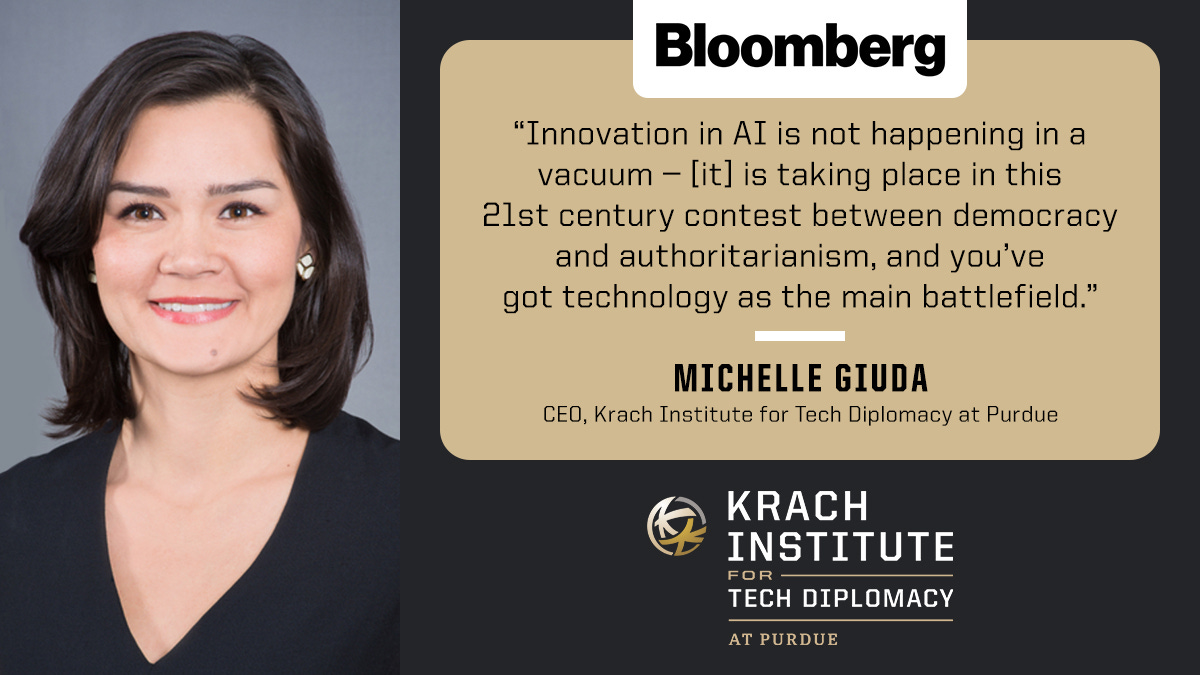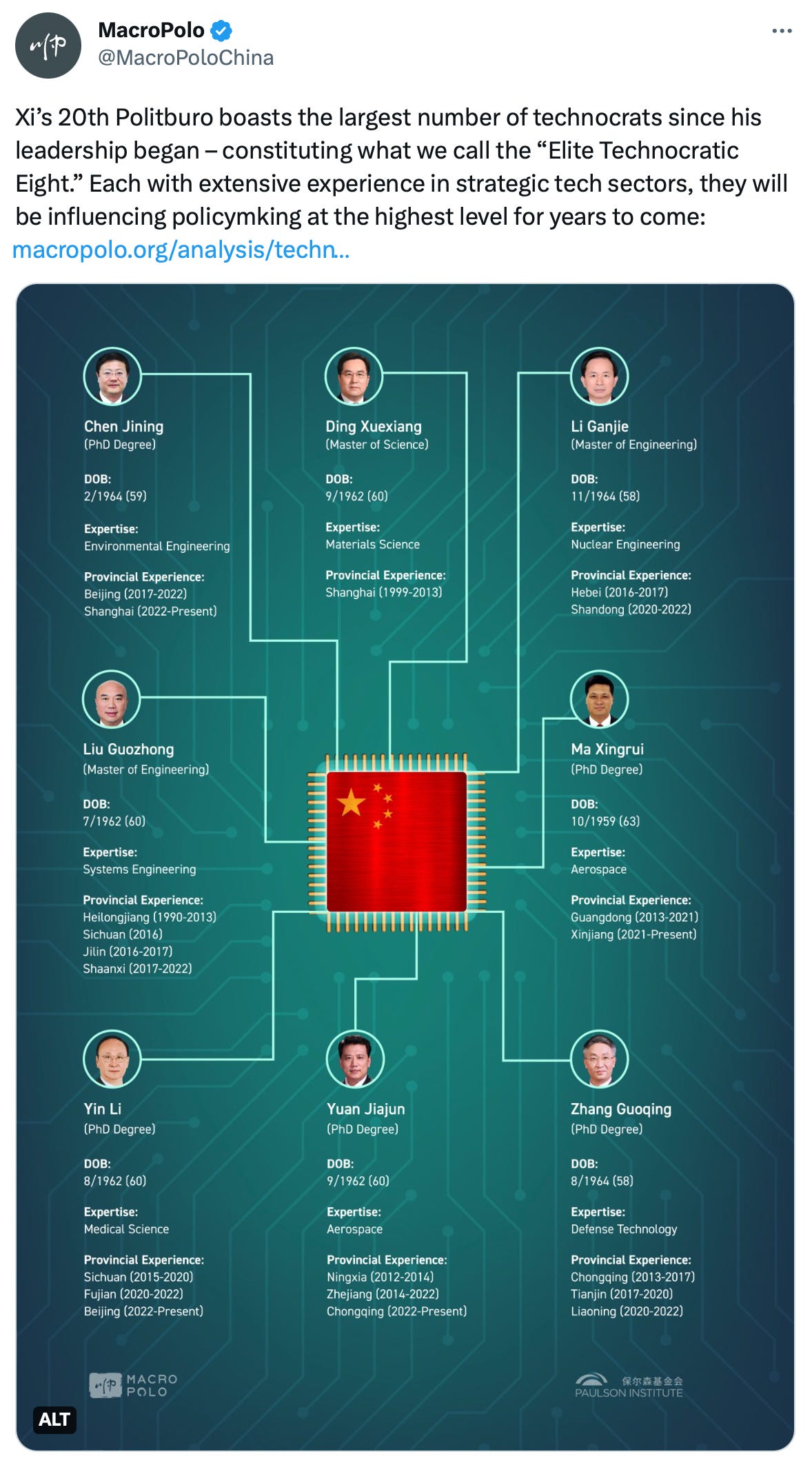Tech Diplomacy Now: Portugal Bans Huawei
The intersection of technology, foreign policy, and the news you need to know
TABLE OF CONTENTS
Top News of the Week
Announcements
Latest News
Technology Strategy and Policy
Artificial Intelligence
Telecommunications Networks and Infrastructure
Critical Minerals
Synthetic Biology
Quantum
Advanced Aerospace Technology
Semiconductors and Microelectronics
Energy and Climate
Opinion and Commentary
The Last Word
Top News of the Week – Portugal Becomes the Latest Country to Ban Huawei
Portugal’s National Security Office (GNS, Gabinete Nacional de Segurança) conducted a security assessment of telecommunications equipment for the country’s 5G infrastructure and ruled that companies from ‘high-risk’ countries must be excluded and their equipment removed. GNS defines a ‘high risk’ company as one that “is domiciled or, in any other relevant way, linked to a country that is not a member state of the European Union, NATO, or the OECD.
In August 2022, Portugal enacted a telecommunications law which created a security evaluation commission. One of its first acts was to investigate the networks established by Altice, NOS, and Vodafone in the country. The decision last week will force those network operators to replace Huawei equipment.
While not calling out Huawei specifically, GNS’ decision makes clear that equipment is untrustworthy if it is manufactured by a firm in which “the legal system of the country in which it is domiciled… allows the Government to exercise control, interference or pressure over its activities operating in third countries.”
Background reading:
Portugal paves way to a Huawei ban on country’s 5G network – Financial Times, May 26, 2023
Portugal Effectively Bans Chinese Companies From 5G Network – Bloomberg, May 26, 2023
Huawei excluída da rede 5G em Portugal [Huawei excluded from the 5G network in Portugal] – IT Insight, May 29, 2023
How Washington chased Huawei out of Europe – Politico, November 23, 2022
Announcements
Please join the Global Tech Security Commission (GTSC) – a joint partnership between the Atlantic Council’s Global China Hub and Krach Institute for Tech Diplomacy at Purdue – and the GeoTech Center on June 5 at 11:30am ET for a virtual panel discussion on the ongoing competition between the US and China to drive AI technology and governance structures.
The AI tech race has evolved in recent years as Washington has launched collaborative initiatives among government, military, and tech-industry actors and sought to advance legislation to maintain a competitive edge against Beijing. For now, US tech firms still maintain a strong lead in AI development and investment relative to Chinese companies but this gap is beginning to close. China is already ahead of the United States in AI adoption, and it has a large and growing community of high-quality AI experts.
Latest News
ChatGPT Risks Divide Biden Administration Over EU’s AI Rules - Bloomberg, May 31, 2023
China Puts Spymaster in Charge of U.S. Corporate Crackdown – WSJ, May 18, 2023
Microsoft warns that China hackers attacked U.S. infrastructure – CNBC, May 24, 2023
Chinese Malware Hits Systems on Guam. Is Taiwan the Real Target? – NYTs, May 24, 2023
Purdue signs landmark U.S.-Japan agreement in semiconductors at G7 summit – Purdue University, May 22, 2023
Nanometers over GDP: Can Technocrat Leaders Improve China’s Industrial Policy? - Macro Polo, May 23, 2023
Technology Strategy and Policy
The power of control: How the EU can shape the new era of strategic export restrictions – European Council on Foreign Relations, May 17, 2023
Inaugural U.S.-Taiwan Science and Technology Cooperation Dialogue Strengthens Collaboration, Understanding Between S&T Communities – U.S. State Department, May 22, 2023
Following G7, Export-Import Bank of the United States Advancing Partnership for Global Infrastructure & Investment – Export-Import Bank of the United States, May 22, 2023
People's Republic of China State-Sponsored Cyber Actor Living off the Land to Evade Detection – CISA, May 24, 2023
Artificial Intelligence
The Global Race to Regulate AI – Foreign Policy, May 5, 2023
Liz O'Sullivan on risks and ethics of AI in warfare – NatSec Tech Podcast, May 24, 2023
How AI Is Catapulting Nvidia Toward the $1 Trillion Club – WSJ, May 27, 2023
How Nvidia created the chip powering the generative AI boom – Financial Times, May 26, 2023
Telecommunications Networks and Infrastructure
Driver’s Licenses, Addresses, Photos: Inside How TikTok Shares User Data – NYTs, May 24, 2023
A Memo for the President on Regaining U.S. Leadership in Advanced Networks – SCSP, May 25, 2023
Critical Minerals
Australia, India to seek closer economic ties, critical minerals cooperation – Reuters, May 24, 2023
How to Secure Critical Minerals for Clean Energy Without Alienating China – Council on Foreign Relations, May 25, 2023
Critical minerals: Can we have our cake and eat it, too? – DW, May 25, 2023
EV critical minerals: no sourcing strategy is without risk – Automotive World, May 25, 2023
Synthetic Biology
A Paralyzed Man Can Walk Naturally Again with Brain and Spine Implants – NYTs, May 24, 2023
Activists demand answers from U.S. company that sold DNA kits to Tibet – The China Project, May 25, 2023
Quantum
To Restrict, or Not to Restrict, That Is the Quantum Question – Lawfare, May 1, 2023
From self-driving cars to military surveillance: Quantum computing can help secure the future of AI systems – Phys.Org, May 28, 2023
IBM wants to build a 100,000-qubit quantum computer – MIT Technology Review, May 25, 2023
Advanced Aerospace Technology
Why China fears Starlink – The Economist, May 18, 2023
NASA Selects 12 Companies to Collaborate on Key Technology Development – NASA, April 25, 2023
Semiconductors and Microelectronics
US supers maintain grip on Top500 list as China seemingly hides its powers – The Register, May 22, 2023
Chip Companies, Wary of Break With China, Seek Looser Limits on Federal Cash – WSJ, May 26, 2023
US ‘Won’t Tolerate’ China’s Micron Chips Ban, Raimondo Says – Bloomberg, May 27, 2023
China urges Japan to halt export restrictions on chips – Reuters, May 29, 2023
Energy and Climate
DOE won’t award $200M to battery company criticized by GOP over China links – PoliticoPro, May 22, 2023
Why some companies want you to rent the battery in your EV – MIT Technology Review, May 18, 2023
This startup says its first fusion plant is five years away. Experts doubt it. – MIT Technology Review, May 10, 2023
Opinion and Commentary
AI: Can the Machines Really Think? – Past, Present, and Future Podcast, May 25, 2023
When You're in a Cold War, Play for Time – Niall Ferguson, Bloomberg, May 20, 2023
As G-7 Host, Japan Schools the World – Walter Russell Mead, WSJ, May 22, 2023
Don’t Kill ‘Frankenstein’ With Real Frankensteins at Large – Maureen Dowd, NYTs, May 27, 2023
The Last Word
“NATO stands behind Ukraine, including in their innovation efforts. Where wartime hobbyists, startups and NGOs help overmatch Russian aggressors today – we can also see a pathway for a robust Ukrainian innovation ecosystem in economic reconstruction tomorrow.”
David van Weel, NATO Assistant Secretary General for Emerging Security Challenges at the launch of the NATO-Ukraine High-Level Innovation Dialogue on May 26, 2023
About: Tech Diplomacy Now
The nonpartisan Krach Institute for Tech Diplomacy at Purdue is focused on securing freedom by accelerating the innovation and adoption of trusted technology.
The Institute is the preeminent global authority on Tech Diplomacy, integrating tech expertise, Silicon Valley strategies, and foreign policy tools to build the Global Tech Trust Network of governments, companies and individuals united around a set of shared trust principles and a common mission to ensure that technology advances freedom






